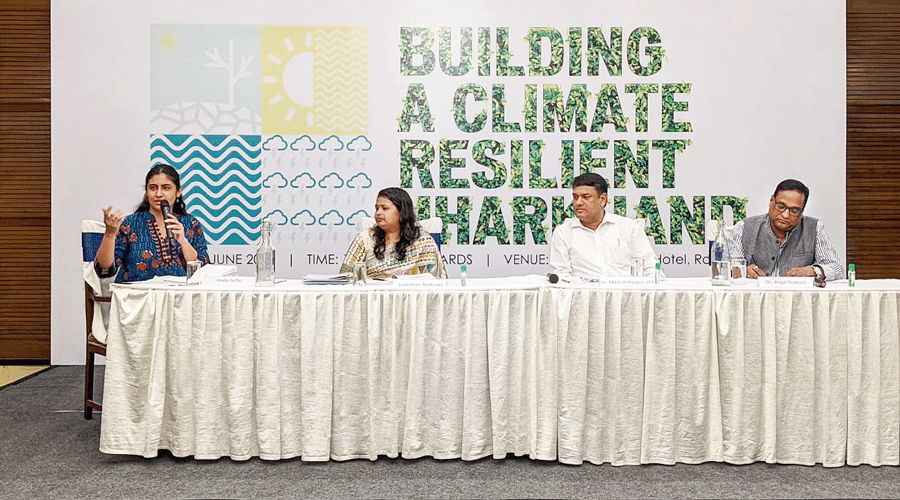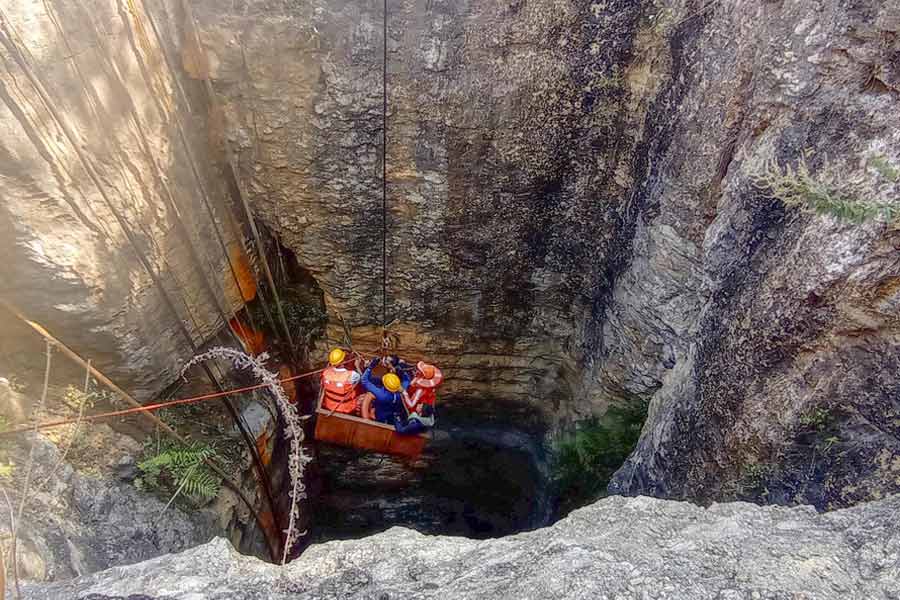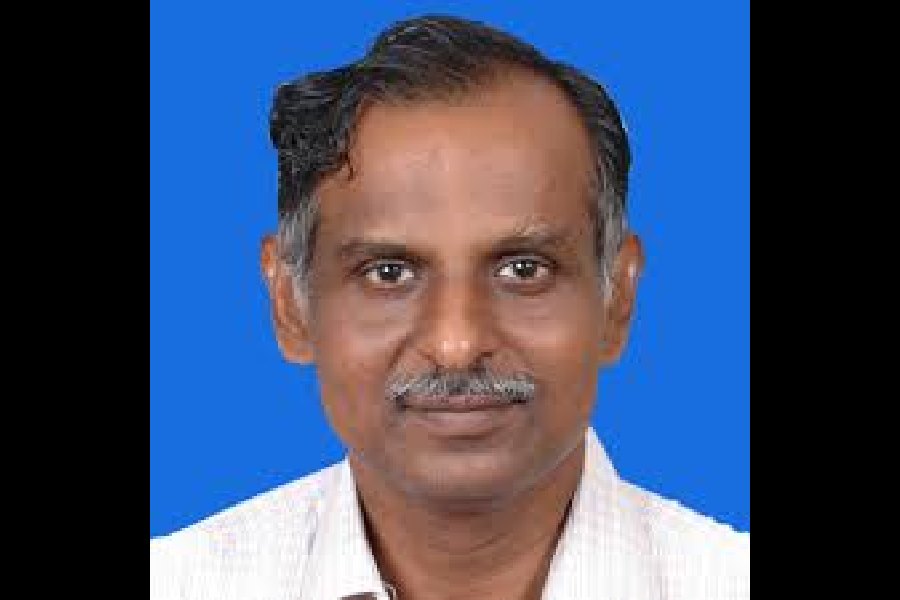A day ahead of the World Environment Day, a conference on “Building a Climate Resilient Jharkhand”, jointly organised by ASAR and Policy Development Advisory Group (PDAG) in Ranchi deliberated on issues related to climate change and its impact in Jharkhand, and the possible policy roadmap to ensure just transition to renewable energy sources. .
The conference brought together key stakeholders from the government, academia and civil society across India to deliberate upon three overarching themes, climate change adaptation and mitigation strategies in Jharkhand, decentralised renewable energy systems and access to reliable energy and ensuring just transition.
The first session on climate change adaptation and mitigation strategies in Jharkhand had as panellists research director — BIPP, ISB Hyderabad Anjal Prakash, team coordinator, PRADAN (NGO) Jayashree Mohanta and secretary rural development department, Manish Ranjan focussed on understanding the impact of climate change on broadly two sectors; agriculture and non-timber forest produce (NTFPs). It seeked to focus on addressing the potential effects of climate change and increasing attention towards adaptation strategies. The session panellists discussed the IPCC findings and their relevance for Jharkhand, home to over 27% tribal population, which is heavily dependent on agriculture and NTPFs. It highlighted the need to focus on climate change adaptation and mitigation strategies for states like Jharkhand, to include them in the national policy discourse.
Manish Ranjan highlighted the role of the state government towards mitigating climate change and stated how the Birsa Harit Gram Yojana is geared towards the dual aim of generating economic benefits as well contributing to the environment by timber and non-timber plantation.
“The need is to leverage local knowledge brought to light through knowledge co-creation from work on and interaction at the ground level. This will help build research that supports action and implementation of a climate change resilient Jharkhand,” said Anjal Prakash.
Inaugurating the conference, Vinuta Gopal, CEO- ASAR said Jharkhand has the potential to show that even small can be big when it comes to building climate resilience.
The second session on decentralised renewable energy system and access to reliable energy had as panellists, programme Lead — Renewables, CEEW Disha Agarwal, contributing editor at Mongabay — India Mayank Aggarwal and director, Eastern Regional Centre, Institute of Human Development, Ramesh Sharan discussing the efforts being made towards decarbonising the world economy. The focus of the session was to understand the role of renewable energy in helping Jharkhand mitigate the impact of climate change. This session also deliberated upon the prospective role of Jharkhand Solar Policy 2022, in helping the state reduce its dependence on coal-based power.
The final session on ensuring Just Transition had as panellists secretary mines, Aboobacker Siddique, founder Chemical Mazdoor Panchayat, Ashim Roy and India Lead analyst and coordinator, International Energy Association (IEA) Swati D’ Souza.
The session discussed potential strategies and tradeoffs related to phasing out of coal dependency, and transitioning to renewable power. It highlighted current social, political and economic barriers for just transition and focused on how existing government funds like District Mineral Foundation Trust (DMFT) can be utilised to provide alternative sustainable sources of livelihood to workers.
“For just transition we need to have a clear cut idea. Any transition/any transfer should consider the impact at the point of departure and at the point of arrival,” said Aboobacker Siddique.










